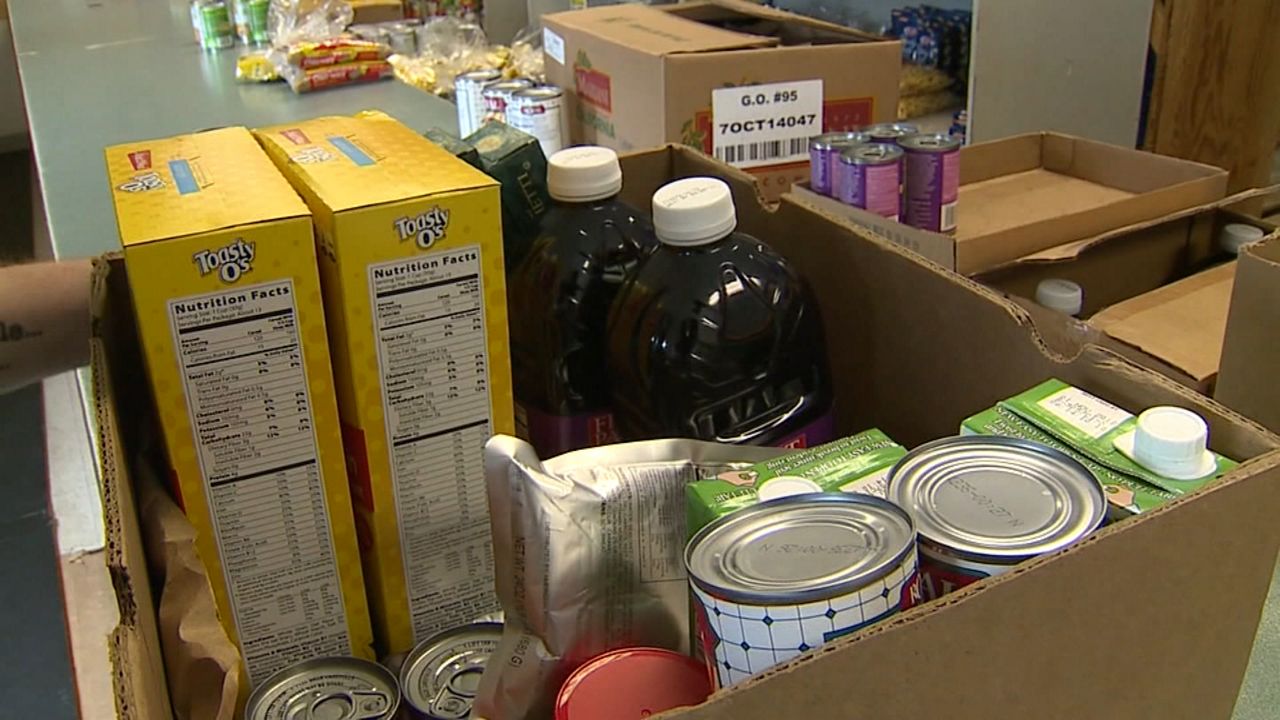FRANKFORT, Ky. — The Kentucky House’s top priority for the 2020 General Assembly Session is reforming the Commonwealth’s public assistance system.
The sweeping legislation makes several changes to uses of public assistance funds including banning the use of public funds to buy tobacco, alcohol, lottery tickets or vaping products. It also regulates what type of groceries can be bought using the Supplemental Nutritional Assistance Program (SNAP) prohibiting beneficiaries from spending more than 25% of the benefits on soft drinks or energy drinks while banning anyone who sells their electronic benefit transfer (EBT) card for life from receiving public benefits and removes the option to pull cash from the card. House Bill 1 also makes several changes to the Medicaid program — including lifetime bans for anyone convicted of a drug offense that doesn’t enroll in a drug treatment program within 90 days of the release.
Kentucky Center for Economic Policy says while some of the reforms are meant to help people who are right on the edge of receiving benefits and being ineligible, often referred to as the “working poor”, the bill creates costly new hurdles for those in need and creating lifetime bans on vital services for those in need.
“I think if the intention is to make sure folks are supported when they are doing their best to make ends meet then that’s a good intention, I think banning people from benefits, I think penalizing people for the kinds of purchases they make I don’t think any of those things achieve that goal,” said Dustin Pugel, a Senior Policy Analyst with KCEP. “I think we need to take a real serious look at evidence from other states, evidence from our own past as a state to find out good ways of doing that and I think there are clear answers but this isn’t it.”
The measure would require Medicaid beneficiaries to enroll in their employer’s plan through the Kentucky Integrated Health Insurance Premium Payment Program (KI-HIPP) if health coverage is offered, KCEP says this could increase costs for beneficiaries. This would require anyone between 138% of the federal poverty level (FPL) and 200% FPL to enroll in KI-HIPP if offered by their employer, this could cause healthcare to become more expensive for beneficiaries because it prohibits beneficiaries from receiving cost-sharing subsidies.
“They would have to pay their employers premium upfront and then get reimbursed by the Cabinet which is the way it works now but voluntarily,” Pugel said. “That program is good right now as a voluntary program it could help some folks conceivably and it’s good we are giving them that choice, this takes that choice away and more or less requires them under certain circumstances to join their employers’ coverage and have Medicaid pick up some of the bills but not all of them. So in a lot of ways we are very concerned this bill will make things a lot harder on folks who are just trying to get by but just having a hard time.”
Pugel also believes some of the changes could be unlawful.
“It’s not clear to me that you can have a lifetime ban for folks on Medicaid who fail to enroll in drug treatment in a certain amount of time, I don’t think there’s any legal mechanism to do so,” he said. “There’s no way right now for states to ban someone from Medicaid which is a program administrated under the Federal Health and Human Services Cabinet if they violate rules under SNAP, which is under the USDA and so forth, I don’t think you can do that.”
Pugel believes the way the health portion of the bill is written right now is legal but it would cost Kentucky federal dollars from Medicaid.
House Speaker David Osborne, R-Osborne, says a hearing on the legislation is being held up as they try to work for the federal government on parts of legislation dealing with Medicaid.
“In dealing with the federal interpretations of certain Medicaid issues they are not always the most prompt in getting responses back so we are still waiting on a few issues regarding that,” he told reporters last week.
InsureKY, a coalition of several organizations including Kentucky Voices for Health have written an open letter in opposition to House Bill 1.
It’s still unclear when HB 1 will be heard in the committee.



